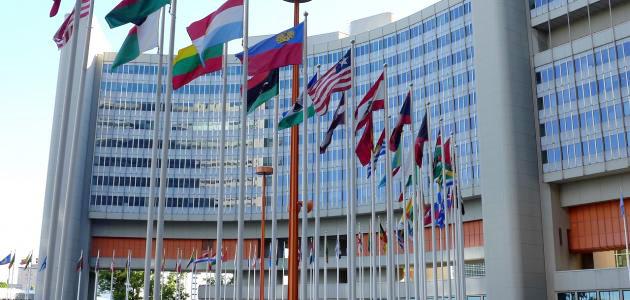International Humanitarian Law: Principles Advocating Peaceful Conflict Resolution Among Nations

International humanitarian law emerged not from an empty void, but rather as a result of a compilation of moral values and principles urging, within a broader context, the avoidance of conflicts between nations and peoples, and the promotion of peaceful problem-solving methods between states.
This law aims to various principles, including those focused on regulating the conduct of armed conflicts to minimize their impact, as well as those dedicated to safeguarding the rights of war victims. The former pertains to the Hague Conventions, while the latter is encompassed by Geneva Conventions.
Despite the fundamental principle outlined in the United Nations Charter prohibiting the use or threat of force in international relations, the current global landscape depicts a rise in armed conflicts across different regions. This necessitates a focus on enhancing the regulations of international humanitarian law that govern these conflicts and endeavors to uphold the utmost adherence to humanitarian principles within them.
The call for the advancement of principles and regulations within international humanitarian law arose due to a growing inclination towards violence and devastation, as well as the development of more deadly methods of warfare. These principles embody the most basic humanitarian values that should be upheld universally, regardless of time, location, or situation, even applying to nations not party to such agreements. While sometimes formalized into written law, the essence of international humanitarian law is deeply rooted in societal norms and morals, which emphasize the importance of honoring these standards.
The core tenets of international humanitarian law are inviolable, as they belong to customary international law. Therefore, these regulations are deemed essential elements of the foundational rules that are imperative for the global community, and adherence to them is crucial for fostering healthy relationships between nations.
The International Court of Justice has the authority to emphasize the key principles of international humanitarian law in cases brought before it. Through its provisions and advisory opinions, the court has underscored the significance of the entire international community in upholding these rules. The development and enforcement of international humanitarian law, with its shared and universal obligations, are in the common interest of all nations, reflecting an international responsibility for any State that fails to fulfill its obligations. This law's unique characteristics and noble principles have transformed humanitarian conventions from bilateral agreements among States to instruments with universal obligations. These obligations are absolute and hold even non-signatory States accountable for any breaches.
In the same context, the International Court of Justice holds a pivotal position in shaping the principles of international humanitarian law because it is the principal judicial organ of the United Nations and there are no legal barriers to filing cases of international humanitarian law violations before them it. The International Court of Justice has applied numerous principles of international humanitarian law in its rulings and advisory opinions. This is notably apparent in its examination of disputes arising from the execution or understanding of various humanitarian agreements formulated or endorsed by the United Nations.
The Court aims to enhance and broaden the safeguarding of individuals and assets, while also enhancing the possibilities for comprehensive protection. Rather than confining protection to certain scenarios like 'the wounded, sick, and prisoners,' the texts now unequivocally advocate for the widespread protection of civilian populations without discrimination. This marked shift represents a significant advancement and a substantial achievement in the evolution of international humanitarian law.
International humanitarian law and human rights share fundamental principles, with human rights encompassing broader principles. International humanitarian law, on the other hand, is specific and unique, applying only once conflict erupts, thereby limiting or regulating the enjoyment of human rights in times of war.
Retrieved from the following websites:
https://www.icrc.org/ar/doc/resources/documents/misc/62cffp.htm
https://ar.wikipedia.org/wiki/%D8%A7%D9%84%D9%82%D8%A7%D9%86%D9%88%D9%86_%D8%A7%D9%84%D
